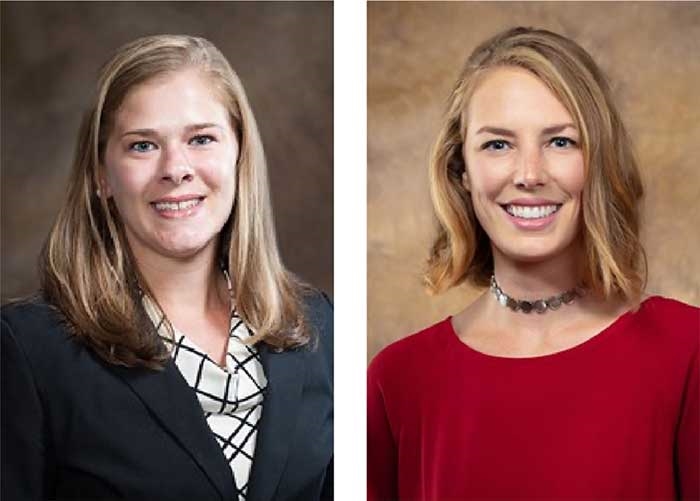Two University of Arkansas professors have created a research laboratory to help make life better for people with communication limitations.
Elizabeth Lorah is an associate professor in special education and a Board Certified Behavior Analyst. Christine Holyfield is an assistant professor in Communication Sciences and Disorders and a speech-language pathologist. Together, they have developed the new interdisciplinary lab in the College of Education and Health Professions.
The new Augmentative and Alternative Communication research lab is a collaboration between the U of A Communication Sciences and Disorders and Special Education programs. The lab is focused on developing and evaluating instructional strategies and technologies for people with intellectual and developmental disabilities — such as autism spectrum disorder and Down syndrome — who have limited speech.
"Speech-language pathology and applied behavior analysis are two fields that do not historically or currently collaborate well," Lorah said. "While there are important differences in the fields, we hope this lab can be one small step toward the fields working together with the focus on our shared goal."
Lorah and Holyfield said they're committed to improving outcomes for people who have little or no functional speech.
"Though there is great overlap in our research goals, we approach those goals from distinct backgrounds relative to our theoretical and clinical perspectives, training and experiences," Holyfield said. "When our unique insights are combined, we have a heightened and more comprehensive approach to augmentative and alternative communication."
Students working toward Applied Behavior Analysis graduate certification and speech-language pathology degrees will get advanced training in the lab to address communication challenges. They'll learn about a wide range of techniques to help with communication, including sign language, symbols, word boards and voice output aids.
"The lab will be a place where students can become a part of the research process and begin to develop their own research abilities," Holyfield said. "It will also be a place where students can learn to work as part of an interdisciplinary team and learn the value of collaboration. Student lab members range from doctoral students to undergraduate honors students."
In addition to serving as a training ground for students, the new lab will be available to the public. Stakeholders such as family members, teachers and other professionals will have access to training and be invited to participate in ongoing research projects. The lab's website will be updated with new research projects. The projects will also involve the U of A autism program.
"We welcome professionals, families and students to contact us at any time," Lorah said.
Topics
Contacts
Shannon G. Magsam, director of communications
College of Education and Health Professions
479-575-3138, magsam@uark.edu
